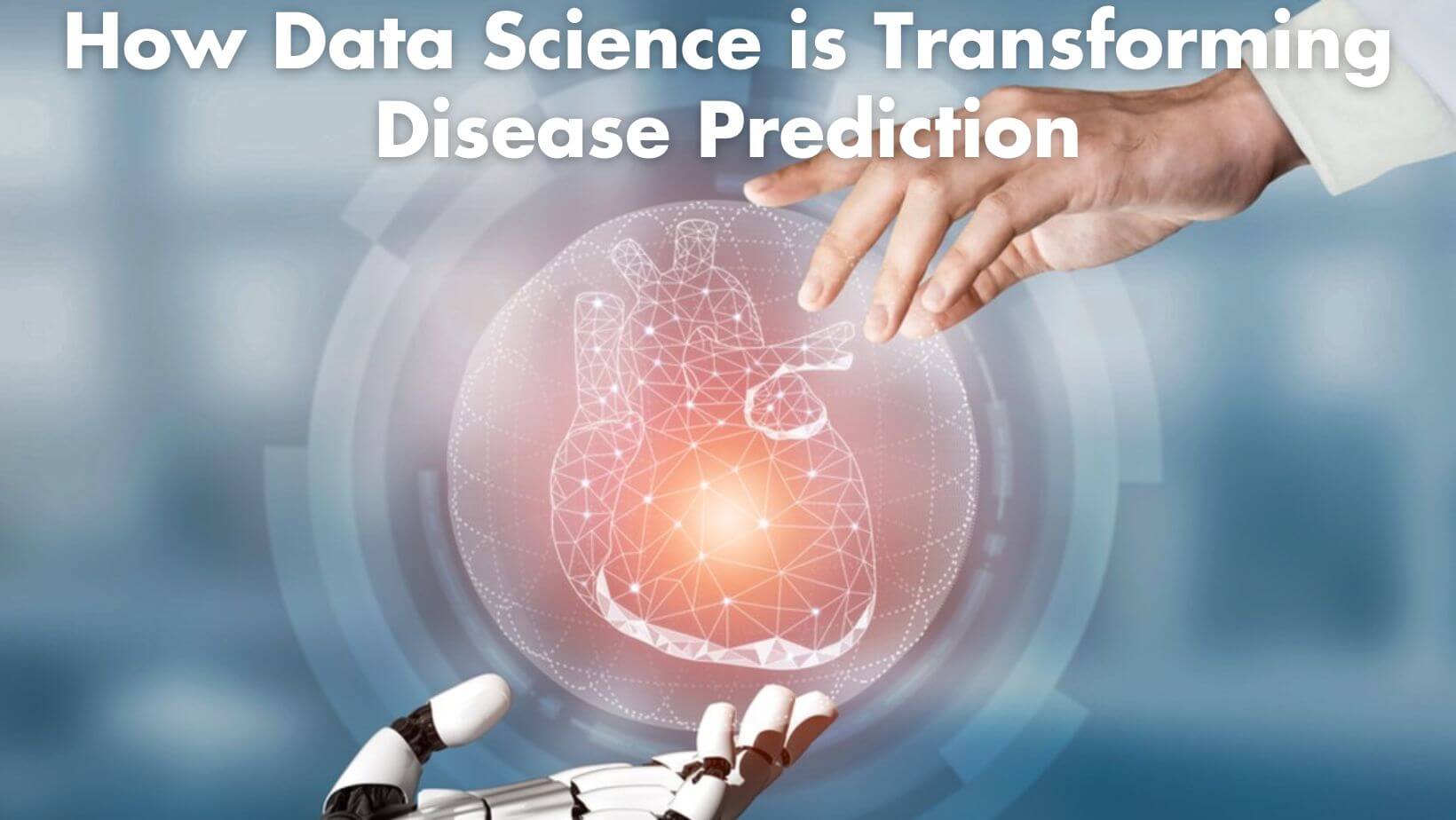
Healthcare has seen remarkable transformations with the advent of data science. From predictive analytics to real-time patient monitoring, data-driven insights are reshaping medical practices. By leveraging machine learning algorithms, big data, and artificial intelligence, healthcare professionals can diagnose diseases earlier, optimize treatment plans, and improve patient outcomes. This article explores the role of data science in disease prediction and its impact on healthcare innovation.
The Role of Data Science in Disease Prediction
- Predictive Analytics for Early Diagnosis
One of the most promising applications of data science in healthcare is early disease detection. Predictive analytics enables healthcare providers to analyze patient history, genetic factors, and lifestyle patterns to anticipate potential health risks. Some key examples include:
- Cancer Detection: Machine learning models analyze medical imaging, genetic data, and patient records to identify cancer at an early stage.
- Cardiovascular Disease Prediction: AI-driven models evaluate ECG patterns, cholesterol levels, and lifestyle factors to predict heart diseases.
- Diabetes Risk Assessment: Algorithms assess glucose levels, BMI, and dietary habits to determine the likelihood of developing diabetes.
- AI-Powered Medical Imaging
Medical imaging techniques like MRI, CT scans, and X-rays generate vast amounts of data. AI and deep learning algorithms can process these images to detect anomalies more accurately and efficiently than traditional methods. For instance:
- AI models can distinguish between benign and malignant tumors with high accuracy.
- Automated image analysis reduces diagnostic errors and speeds up the detection of diseases.
How Data Science is Driving Healthcare Innovation
- Personalized Medicine
Personalized medicine tailors treatment plans based on a patient’s genetic makeup, medical history, and lifestyle. Key innovations include:
- Genomic Data Analysis: AI analyzes DNA sequences to predict disease risks and suggest targeted treatments.
- Pharmacogenomics: Data science helps determine how different patients will respond to medications, reducing adverse effects.
- Real-Time Patient Monitoring and Wearable Technology
Wearable devices and IoT-enabled sensors continuously collect patient data, allowing for real-time health monitoring. Examples include:
- Smartwatches that monitor heart rate, blood pressure, and oxygen levels.
- AI-powered platforms that alert doctors about irregularities in a patient’s vital signs.
- Predictive analytics that identify early signs of potential complications, improving preventive care.
- Drug Discovery and Development
The traditional process of drug discovery is time-consuming and expensive. Data science accelerates this process by:
- Analyzing Molecular Structures: AI models predict how different compounds will interact with diseases.
- Identifying Drug Repurposing Opportunities: Machine learning helps find existing drugs that could be effective against new diseases.
- Optimizing Clinical Trials: AI identifies suitable candidates for trials, enhancing efficiency and success rates.
The Impact of Data Science on Public Health
- Epidemic Prediction and Outbreak Control
Data science plays a crucial role in predicting and managing disease outbreaks. Key contributions include:
- Analyzing Social and Environmental Factors: AI models assess how climate, population density, and travel patterns influence disease spread.
- Real-Time Disease Tracking: Tools like Google Flu Trends use search data to detect flu outbreaks.
- Optimizing Vaccine Distribution: Data analytics helps authorities allocate vaccines efficiently during pandemics.
- Improving Hospital Operations and Resource Allocation
Data-driven decision-making enhances hospital efficiency by:
- Predicting Patient Admission Rates: AI forecasts the number of patients requiring hospitalization, helping in staff and resource planning.
- Optimizing Bed Management: Predictive analytics ensures better patient flow and reduces wait times.
- Enhancing Supply Chain Management: Hospitals use AI to track inventory and prevent shortages of essential medical supplies.
Challenges and Ethical Considerations
Despite its benefits, data science in healthcare comes with challenges, such as:
- Data Privacy and Security Concerns
With sensitive patient data being collected, ensuring robust cybersecurity measures is essential to prevent breaches.
- Bias in AI Models
AI models must be trained on diverse datasets to prevent biases that could lead to misdiagnoses or unequal treatment.
- Integration with Existing Healthcare Systems
Many hospitals still rely on traditional record-keeping methods, making it challenging to integrate data-driven solutions seamlessly.
Future of Data Science in Healthcare
The future of healthcare innovation will be driven by advancements in AI, big data analytics, and cloud computing. As hospitals and research institutions adopt data science, we can expect:
- More accurate and efficient disease prediction models.
- Enhanced collaboration between technology companies and healthcare providers.
- Greater accessibility to personalized treatments for patients worldwide.
For those looking to build expertise in this field, various data science courses offer training in predictive analytics, AI applications, and healthcare-focused data modeling. Professionals seeking to enhance their skills can explore a data science course in Delhi, Noida, Gurgaon, Pune, and other parts of India, where they can gain hands-on experience in leveraging data for medical advancements.
Conclusion
Data science is revolutionizing healthcare by improving disease prediction, enhancing patient care, and driving medical innovations. From AI-powered diagnostics to personalized treatments, the integration of data-driven technologies is paving the way for a healthier future. While challenges remain, continued research and ethical implementation will ensure that data science continues to transform healthcare for the better.